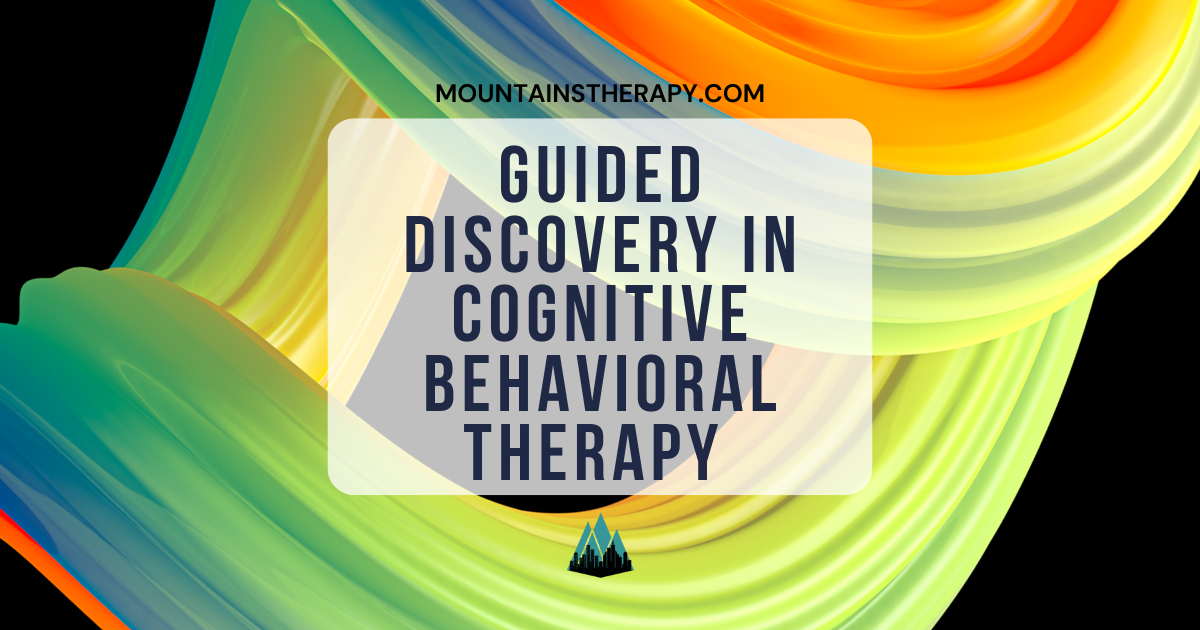What is Guided Discovery in Cognitive Behavioral Therapy?
Learn more about Cognitive Behavioral Therapy - CBT Therapy.
In This Blog, You’ll Learn:
- What guided discovery is in Cognitive Behavioral Therapy.
- How guided discovery helps clients uncover deeper insights.
- Practical examples of guided discovery techniques in therapy.
Cognitive Behavioral Therapy (CBT) is known for its structured, practical approach to addressing negative thought patterns and behaviors. A key component of CBT that often piques interest is guided discovery. But what exactly is it, and how does it contribute to meaningful change in therapy?
Understanding Guided Discovery
Guided discovery is a collaborative process between the therapist and client that helps the client explore and challenge their thoughts, beliefs, and assumptions. Rather than directly telling the client what is "right" or "wrong" about their thought patterns, the therapist uses open-ended questions to lead the client toward uncovering new perspectives and solutions themselves. This method encourages curiosity, self-reflection, and critical thinking, empowering clients to become more aware of their cognitive distortions and how they influence emotions and behaviors.
The Goals of Guided Discovery
Guided discovery serves several purposes in therapy:
- Promoting Self-Awareness: By examining their thought processes, clients can identify recurring patterns and triggers.
- Challenging Cognitive Distortions: Clients learn to question unhelpful beliefs and replace them with more balanced, evidence-based thoughts.
- Building Problem-Solving Skills: Guided discovery equips clients with tools to independently analyze and address future challenges.
How Guided Discovery Works
Therapists employ a variety of strategies during guided discovery to create a safe and supportive environment. Some common techniques include:
- Socratic Questioning: Asking thought-provoking questions like, "What evidence supports this thought?" or "What alternative explanations could there be?"
- Behavioral Experiments: Encouraging clients to test their beliefs through real-world actions. For example, a client who fears public speaking might be guided to try speaking in a small, supportive setting and evaluate the outcome.
- Downward Arrow Technique: Exploring the core belief beneath a surface-level thought by repeatedly asking, "If that were true, what would it mean about you?"
- Thought Records: Using structured worksheets to track thoughts, feelings, and alternative perspectives.
Practical Example of Guided Discovery
Imagine a client struggling with social anxiety who believes, “If I say something awkward, everyone will think I’m stupid.” During a session, the therapist might engage in guided discovery as follows:
- Explore the Thought: The therapist asks, “What makes you think others will judge you so harshly?”
- Examine the Evidence: Together, they discuss past situations where the client thought they were judged and analyze the actual outcomes.
- Consider Alternatives: The therapist poses, “What else could people think if you said something awkward? Could they be understanding or even not notice?”
- Test the Belief: The client is encouraged to initiate small social interactions and reflect on whether their fear materializes.
Why Guided Discovery Matters
Guided discovery is an essential tool in CBT because it fosters independence. Instead of relying on the therapist for answers, clients develop critical thinking skills to evaluate their thoughts and beliefs. Over time, this process builds confidence and resilience, enabling them to navigate life’s challenges with greater ease.
Is Guided Discovery Right for You?
Guided discovery is highly versatile and can be tailored to address a range of issues, from anxiety and depression to health anxiety and relationship struggles. If you’re curious about how it could work for your specific needs, consulting a therapist experienced in Cognitive Behavioral Therapy is a great first step.
At Mountains Therapy NJ, we specialize in Cognitive Behavioral Therapy to help individuals uncover their potential and embrace positive change. Whether you’re struggling with anxiety, depression, or other challenges, our team is here to support you every step of the way. Ready to take the next step? Contact us today to schedule a consultation.











